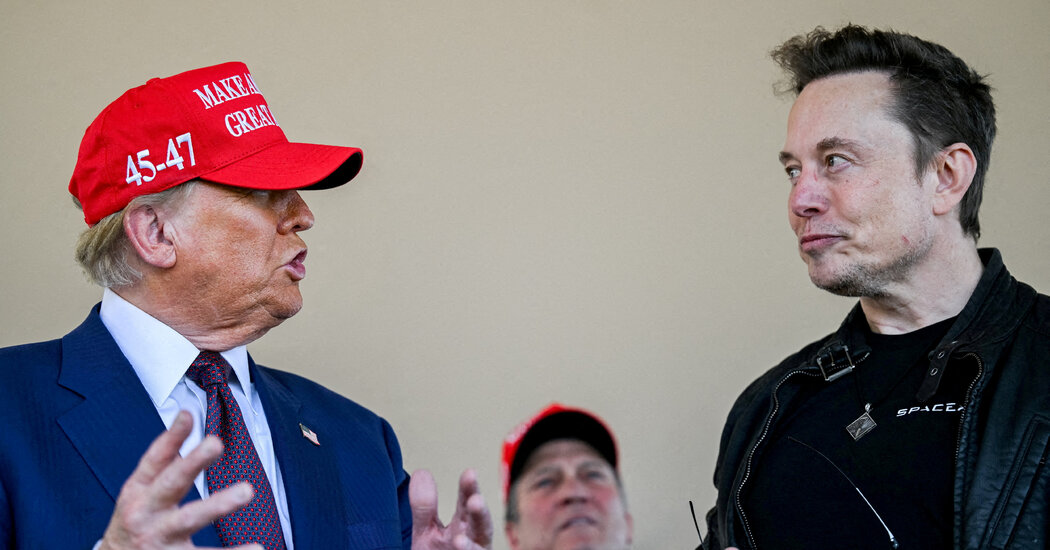Here is the result in plain text:
The clubby insular world of corporate law has entered the culture war. First, Elon Musk started railing against Delaware, which for more than a century has been known as the home of corporate law, after the Delaware Chancery Court chancellor, Kathaleen McCormick, rejected his lofty pay package last year. Eventually he switched where Tesla is incorporated to Texas. Now, Dropbox has announced shareholder approval to move where it is incorporated to outside Delaware, and Meta is considering following suit. Others are also evaluating whether to make the move, DealBook hears. Musk’s ire against the state where nearly 70 percent of Fortune 500 companies are incorporated brought what would usually be an esoteric issue to the national stage and framed it, alongside hot button issues like diversity, equity and inclusion programs, as one further example of overreach.
“You can blame McCormick or you can blame Musk — or you can say it’s a combination of the two of them — but it has turned it into a highly ideologically charged political issue, which it never, ever was before,” said Robert Anderson, a professor at the University of Arkansas School of Law.
The drama over court rulings could have huge consequences for the economy and politics of Delaware, which counts on corporate franchise revenue for about 30 percent of its budget — and more, if you count secondary impacts like tax payments generated by the legal industry.
At issue is a longstanding question in corporate America: How much say should minority shareholders have, especially in a controlled company? One side argues that founders like Mark Zuckerberg are given controlling shares, which give them outsize influence in a company, with the belief that they know what is best for a company. And minority shareholders buy into a company knowing their limitations. The other side argues these controlling shareholders are not perfect.
This isn’t the first time Delaware has come under heat. Phil Shawe, the chief executive of the language and business services company TransPerfect, mounted a multiyear campaign against Delaware after the court effectively seized his business during a fight with his ex-wife and co-owner. That campaign included a lawsuit against one of the Delaware court judges, a $2 million advertising campaign and support for a $1 million PAC opposing Bethany Hall-Long, a candidate for governor last year, arguing that Hall-Long had “failed to support judicial diversity” in her time as state lieutenant governor.
But Musk has made the spotlight brighter. McCormick, who first sparred with Musk over his $44 billion acquisition of Twitter, rejected the entrepreneur’s massive compensation in January, arguing that shareholders had not been properly informed and that Tesla’s board members were not sufficiently independent. In December, she again ruled against the package, even after shareholders showed their support by voting in favor of it.
That latter decision, in particular, got some pushback from the legal community. And, unsurprisingly, Musk and Tesla shareholders descended. “Absolute corruption,” Musk wrote of the decision.
Other blows followed. In a major decision last year, a Delaware court’s vice chancellor, J. Travis Laster, ruled that a new institution to help fund long-term public projects involves a venture capital and asset management arm (one difference from a strategic investment fund: this entity would sell stakes in its funds to private investors).
I think people would say, OK, that makes sense, that there’s not enough investment in U.S. infrastructure and this can catalyze that, Rose said. A Norway-style fund in the United States, he said, “it’s just a head scratcher.”
The National Football League has sold most of its events to the broadcasters. ABC, CBS, NBC and Fox are the most widely distributed networks, and they’re free to watch, which helps the N.F.L. reach the biggest audience possible. (ESPN and Amazon Prime, which cost money, also have games.)
To pay for those rights, the broadcasters take advantage of something called retransmission fees, which require TV distributors like Comcast or Dish to pay to carry their broadcast signals. Anyone, for example, can pick up CBS with a digital antenna, but if a cable or internet TV carrier picks it up, they have to pay for it. These fees are a boon to the broadcasters.
Cable companies can’t buy only sports channels. They’d probably like to: sports are one of the last programs that still draw big live audiences. But when CBS or NBC or ESPN sell their content to distributors like Comcast or Dish, they tend to price them in a bundle. CBS, for example, is part of Paramount which also has Nickelodeon and MTV.
Hence the high cable fees.
With the erosion of cable (and those fees), broadcasters now want to stream sports directly, but it’s a difficult dance. Last year saw a record low number of households paying for television, around 56 million. At its peak the pay-TV industry captured 100 million households.
By now all the major TV networks have created a streamer or acquired a companion streamer. Fox, for example, bought Tubi. They had to. Netflix was taking too many customers away. The risk is always that by selling directly to consumers, networks like ESPN or Fox would anger their distribution partners like Comcast and Dish.
Recently, Disney, Fox and Warner Bros., attempted a joint venture called Venu to sell a skinny bundle of sports channels online that would appeal to cord cutters, but it never got off the ground.
The endgame. Later this year, Disney plans to sell ESPN directly to consumers, which poses the biggest threat to the cable TV universe. ESPN underpins most of the economics of pay television. We don’t know how the ESPN service will be priced, but if it’s competitive with a basic cable package, it would severely cut into pay-TV revenue, and hence the fees they pay to the networks like ESPN. And round and round it goes.
Thanks for reading! We’ll see you Monday.
We’d like your feedback. Please email thoughts and suggestions to dealbook@nytimes.com.
Source link




